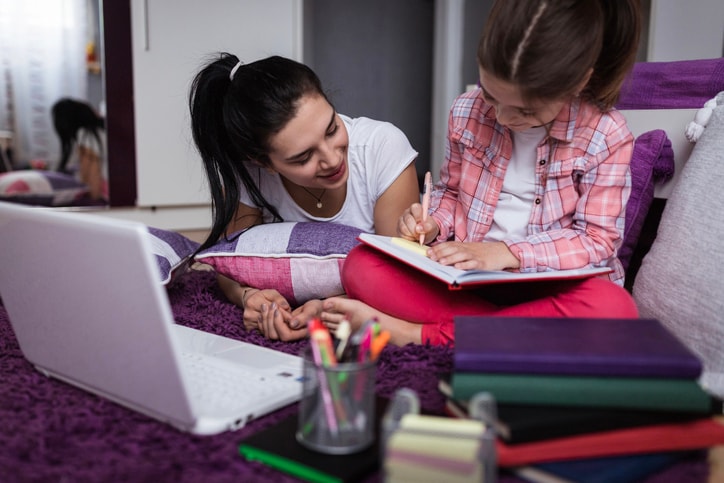Before leaving your child in the care of a trusted nanny or babysitter, make sure they have these 10 key pieces of information in the event of a medical emergency.
When your newborn is lying peacefully in their bassinet, it’s hard to imagine that you—or your babysitter or nanny—may ever need to take your child to the emergency room for a broken finger, an acute asthma attack, an injury from a car accident or another crisis or injury. But just in case the unwished-for crisis occurs, you want to make sure you and your childcare providers are prepared for it. That means consolidating all the important emergency contacts and must-know information in one place—preferably in a simple childcare safety checklist.
We’ve put together a list of the 10 most important pieces of information you, your nanny or your babysitter will need to have in the event that your child has a medical emergency.
What to include on your emergency checklist
1. Your child’s full name
It’s important that it is spelled correctly. (Your babysitter may know their nicknames, but correct full names are on Medicare cards or private health insurance membership cards.)
2. Your child’s address, postcode and phone numbers
In the case of an emergency at home, no one wants to have to run outside and check the house number. And if parents live at separate homes, it’s a good idea to list both addresses.
3. Parents’ contact information
This includes work and mobile phones, name of employers, work addresses and hours they will normally be there.
4. Your child’s doctor’s name and contact information
You’ll also need this information for any specialists your children see, along with a note on what their specialties are.
5. Your child’s dentist’s/orthodontist’s names and contact information
Dental mishaps and emergencies happen more often than we like to think.
6. Any medication/food allergies your child has
Of course, make sure to go over any allergies verbally with your nanny or babysitter as well.
7. Any medical conditions your child has/any medications they take
This includes any warning or danger signs and symptoms for each of those conditions. For example, will your babysitter know how to identify an asthma attack? Be sure you tell them how to recognise it, how to help with the inhaler and when to call 000.
8. Your Medicare number or private health insurance policy number, the policyholder’s name and the address and phone number of the insurance company, as well as your Ambulance Membership details
Your child will be listed on your Medicare card until they turn 15, so be sure to give your Medicare details to your child’s carer. If you have a family policy under private health insurance, be sure to have those details handy for the babysitter. You will need these details for any trips to the doctor or emergency room. And don’t forget your Ambulance Membership details— the last thing you’d want on top of your child being in an emergency is a costly trip to the hospital.
9. Names and contact information for any family/friends to call for help
This is just in case the parents can’t be reached.
10. Your child’s mobile phone number
If you have other kids who may be at school or other activities, include their mobile phone numbers, if any, as well as an emergency contact number of a friend or family member who can help out or pick up other kids in case of an emergency. It’s worth taking the time to tell your kids what will happen if there is an emergency with one of their siblings, and which family member or friend they can expect to pick them up or stay with them if necessary.
This reusable, just-in-case checklist for babysitters and nannies will help keep emergency contacts, procedures and health concerns all in one place. Keep a copy on your refrigerator and make sure every caregiver has one of their own, too. If there’s an emergency while you’re away, this handy checklist will tell your babysitters what to do and who to call.
